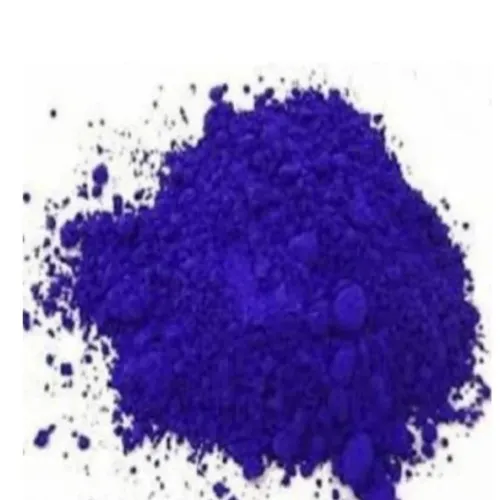Warning: Undefined array key "title" in /home/www/wwwroot/HTML/www.exportstart.com/wp-content/themes/1198/header.php on line 6
Warning: Undefined array key "file" in /home/www/wwwroot/HTML/www.exportstart.com/wp-content/themes/1198/header.php on line 7
Warning: Undefined array key "title" in /home/www/wwwroot/HTML/www.exportstart.com/wp-content/themes/1198/header.php on line 7
Warning: Undefined array key "title" in /home/www/wwwroot/HTML/www.exportstart.com/wp-content/themes/1198/header.php on line 7
- Afrikaans
- Albanian
- Amharic
- Arabic
- Armenian
- Azerbaijani
- Basque
- Belarusian
- Bengali
- Bosnian
- Bulgarian
- Catalan
- Cebuano
- China
- China (Taiwan)
- Corsican
- Croatian
- Czech
- Danish
- Dutch
- English
- Esperanto
- Estonian
- Finnish
- French
- Frisian
- Galician
- Georgian
- German
- Greek
- Gujarati
- Haitian Creole
- hausa
- hawaiian
- Hebrew
- Hindi
- Miao
- Hungarian
- Icelandic
- igbo
- Indonesian
- irish
- Italian
- Japanese
- Javanese
- Kannada
- kazakh
- Khmer
- Rwandese
- Korean
- Kurdish
- Kyrgyz
- Lao
- Latin
- Latvian
- Lithuanian
- Luxembourgish
- Macedonian
- Malgashi
- Malay
- Malayalam
- Maltese
- Maori
- Marathi
- Mongolian
- Myanmar
- Nepali
- Norwegian
- Norwegian
- Occitan
- Pashto
- Persian
- Polish
- Portuguese
- Punjabi
- Romanian
- Russian
- Samoan
- Scottish Gaelic
- Serbian
- Sesotho
- Shona
- Sindhi
- Sinhala
- Slovak
- Slovenian
- Somali
- Spanish
- Sundanese
- Swahili
- Swedish
- Tagalog
- Tajik
- Tamil
- Tatar
- Telugu
- Thai
- Turkish
- Turkmen
- Ukrainian
- Urdu
- Uighur
- Uzbek
- Vietnamese
- Welsh
- Bantu
- Yiddish
- Yoruba
- Zulu
Oct . 20, 2024 22:36 Back to list
Exploring the Versatile Applications of Propylene Glycol in Various Industries
The Versatile Applications of Propylene Glycol
Propylene glycol, a synthetic organic compound with the chemical formula C3H8O2, has gained significant attention across various industries due to its versatility and safety profile. As a colorless, odorless, and hygroscopic liquid, it serves numerous functions, primarily as a solvent, humectant, and emulsifier. This article aims to explore the diverse uses of propylene glycol, its safety considerations, and its importance across different sectors.
1. Food and Beverage Industry
One of the most common applications of propylene glycol is in the food and beverage industry. It is classified by the U.S. Food and Drug Administration (FDA) as generally recognized as safe (GRAS). Propylene glycol is widely used as a food additive, where it serves as a solvent for flavors, colors, and vitamins, ensuring their uniform distribution within products. Additionally, it acts as a humectant, helping to retain moisture in food items, which is crucial for maintaining freshness in products like baked goods and processed meats.
2. Cosmetics and Personal Care Products
In the realm of cosmetics and personal care, propylene glycol serves as an essential ingredient in a variety of formulations. Its ability to dissolve other ingredients makes it a popular choice in products such as lotions, creams, and shampoos. It helps to improve the texture of these products, ensuring they spread evenly on the skin or hair. Moreover, its humectant properties attract and retain moisture, contributing to skin hydration. Given its low irritation potential, propylene glycol is also favored for sensitive skin formulations.
3. Pharmaceuticals
Propylene glycol is extensively utilized in the pharmaceutical industry, where it serves multiple purposes. It is often used as a solvent for pharmaceuticals, allowing for better absorption and bioavailability of active ingredients. Its low toxicity profile makes it suitable for use in injectable formulations, where it acts as a stabilizer for medications. Additionally, propylene glycol is used in cough syrups and topical ointments, aiding in the delivery of therapeutic agents to the body.
propylene glycol use

4
. Industrial ApplicationsIn industrial settings, propylene glycol finds applications as an antifreeze and de-icing agent. It is used in various cooling systems, particularly in food processing and refrigeration units, where it ensures safe operation at low temperatures. Its non-toxic nature allows for safe use in environments where contact with food may occur. Furthermore, propylene glycol is employed in the production of plastics and as a lubricant in various machinery, showcasing its utility beyond traditional consumer products.
5. Environmental Considerations
The production and use of propylene glycol are generally regarded as environmentally friendly. Unlike its counterpart, ethylene glycol, propylene glycol biodegrades more readily, reducing the potential for environmental impact. However, it is essential to manage its usage properly to ensure sustainability, especially in industrial applications. The increasing focus on eco-friendly products and processes has led to a growing interest in propylene glycol-based alternatives in various sectors.
6. Safety and Regulatory Aspects
Despite its widespread use, safety remains a crucial consideration when utilizing propylene glycol. Its GRAS status by the FDA provides reassurance regarding its safety for consumption and application in personal care products. However, some individuals may experience allergic reactions or skin irritation, especially with high concentrations; thus, manufacturers should adhere to recommended usage levels. Continuous monitoring and adherence to regulations ensure that propylene glycol remains a safe ingredient across its diverse applications.
Conclusion
In summary, propylene glycol's unique properties and versatility have established it as a valuable compound across various industries, including food, cosmetics, pharmaceuticals, and more. Its ability to enhance the quality and stability of products while maintaining safety makes it a key ingredient in countless applications. As industries continue to innovate and seek out safe and effective compounds, the importance of propylene glycol is poised to grow, solidifying its role as an essential component in modern manufacturing and consumer products.
Latest news
-
Certifications for Vegetarian and Xanthan Gum Vegetarian
NewsJun.17,2025
-
Sustainability Trends Reshaping the SLES N70 Market
NewsJun.17,2025
-
Propylene Glycol Use in Vaccines: Balancing Function and Perception
NewsJun.17,2025
-
Petroleum Jelly in Skincare: Balancing Benefits and Backlash
NewsJun.17,2025
-
Energy Price Volatility and Ripple Effect on Caprolactam Markets
NewsJun.17,2025
-
Spectroscopic Techniques for Adipic Acid Molecular Weight
NewsJun.17,2025

